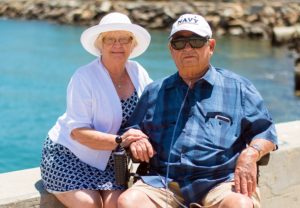POSTED IN: Elder Law, Long-Term Care, Medicaid Planning
TAGS: Georgia Law, Georgia Medicaid, Long-Term Care Facilities, Medicaid, Nursing Home
Share this
Nursing Home Medicaid pays for the majority of the cost of the nursing home for the majority of all Georgia nursing home residents. When we last checked, almost 80% of all nursing home residents in Georgia receiving long-term care (and not short-term rehab) are on Medicaid. Nationwide, Medicaid covers 6 in every 10 nursing home residents.
This can be quite a shock to families, as almost all of a nursing home resident’s income must go to the nursing home.
Each Medicaid beneficiary must pay his/her income to the nursing home with few exceptions. This means that on a monthly basis, almost all of a nursing home resident’s income goes to the nursing home, and Medicaid pays the rest of the bill. This undoubtedly leaves Medicaid paying the bulk of each month’s expenses, but each resident does share in some of the costs. How much each resident pays depends on the resident’s income.
Income Diversions
Medicaid allows only a few expenses to be paid from the resident’s income. These income diversions reduce the patient liability (or how much is paid to the nursing home from the resident) and increases the amount Medicaid pays to the nursing home. These diversions include health insurance premiums, incurred medical expenses, spousal diversions, and a personal needs allowance.
To understand how this works, consider Mr. Smith. Mr. Smith was placed in a nursing home after a devastating stroke. His wife of 58 years was too frail to care for him at home, and paying for full-time caregivers was unimaginable for this couple of modest means.
Although the Smiths never thought of themselves as poor, they do qualify for Medicaid. Mr. Smith’s monthly income is $2,200. His wife has an income of $1,800. They were living comfortably off of their $4,000 income, but this was not enough to pay for extensive long- term care that Mr. Smith now needs. He has health insurance premiums of $200/month. How much is Mr. Smith’s patient liability?
Mrs. Smith is entitled to keep $1,360.50 of Mr. Smith’s income (this amount plus her income of $1,800 gives her the maximum monthly maintenance needs allowance of $3,160.50). He also gets to pay for his $200 health insurance premiums, and he gets to keep $70 for his personal needs allowance. This means that of their $4,200 income, $569.50 will be paid to the nursing home; and Medicaid will pay the remaining balance at the nursing home each month.
If you have questions about Medicaid and the patient liability, please contact our office via email or 404-843-0121.
Share this
Subscribe to our blog and monthly newsletter.











